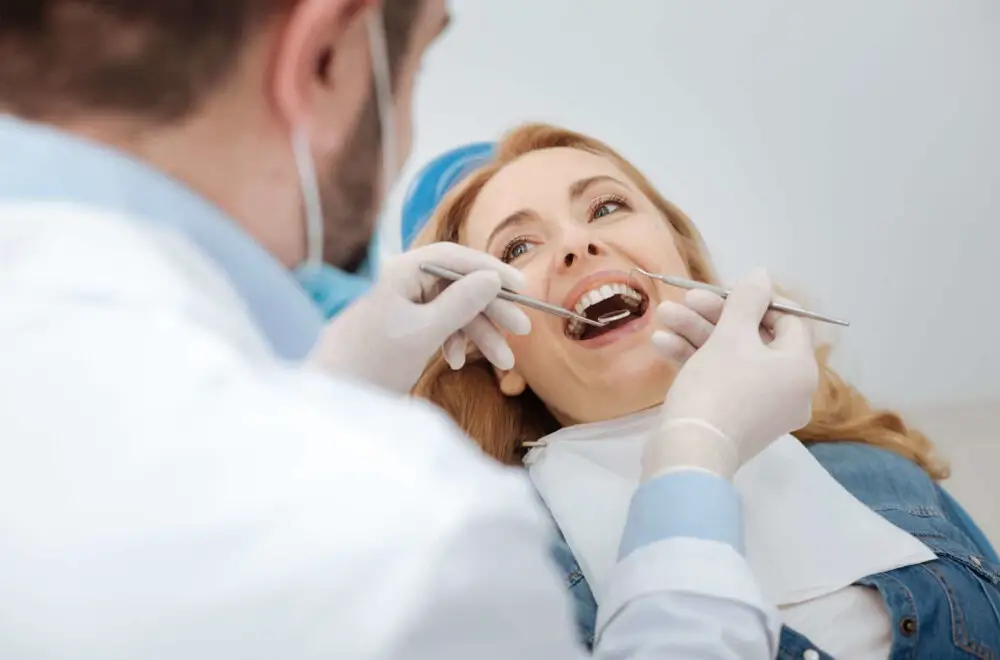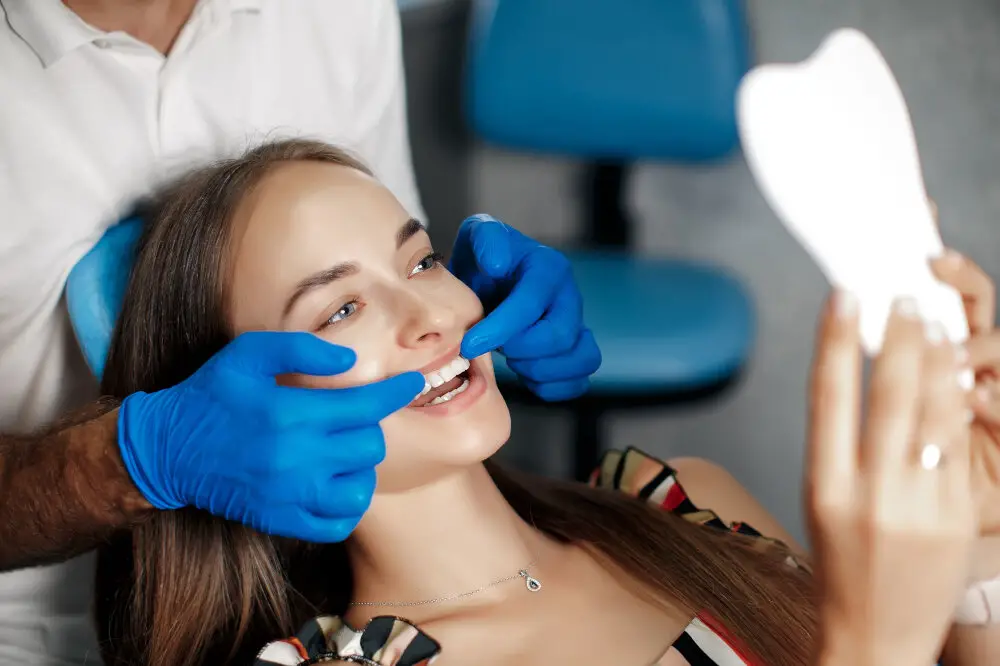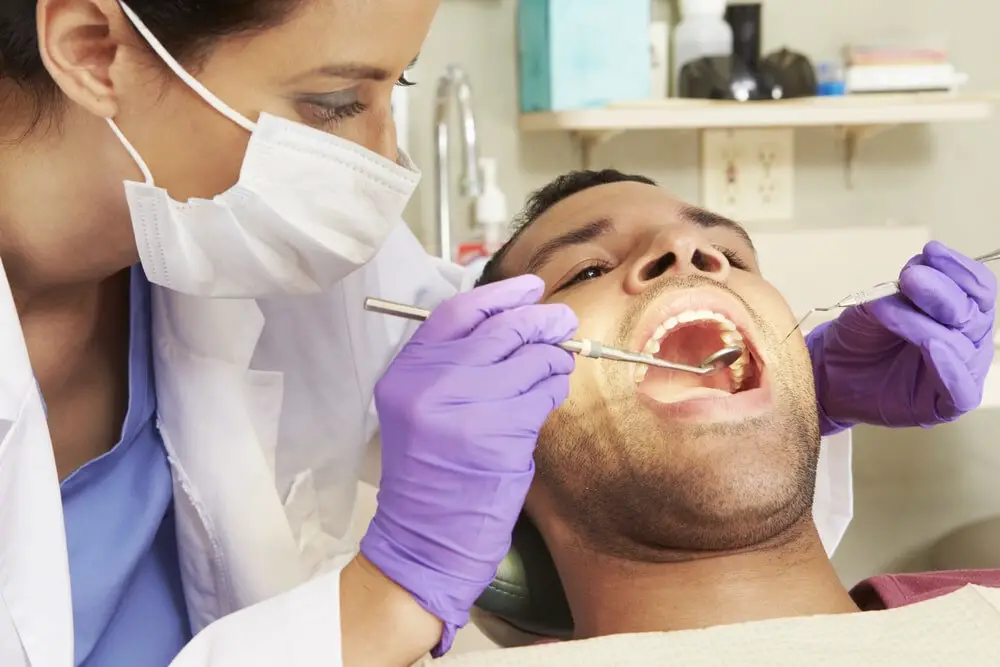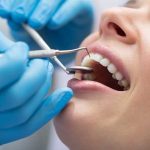Why Running Triggers Tooth Pain: Causes and Solutions

Running is a great way to keep oneself fit and healthy. However, some runners experience a sharp and intense toothache while running. This tooth pain can be a major hindrance to one’s workout routine, and can also indicate an underlying dental problem. Tooth pain while running is not uncommon, and there are several causes and solutions for it. Understanding the reasons behind this tooth pain and taking appropriate measures can help runners continue their fitness journey without any pain or discomfort. One of the primary reasons why running triggers tooth pain is due to the increased blood flow in the body. When someone runs, their heart pumps faster, and blood flows to all parts of the body, including the teeth. If there is an underlying dental issue like a cracked tooth, cavity, or gum disease, the increased blood flow can cause pain or sensitivity in the teeth. Additionally, dehydration while running can also lead to dry mouth, which can cause tooth decay and other oral health problems. In this article, we will explore in-depth the causes and solutions for tooth pain while running.
Running is a popular physical activity that offers numerous health benefits, including weight loss, improved cardiovascular health, and stress relief. However, some runners may experience tooth pain or sensitivity during or after their runs, which can be quite discomforting. Tooth pain while running can be caused by various factors, such as dehydration, teeth grinding, sinus pressure, or even a dental infection. Fortunately, there are several solutions to alleviate tooth pain while running, such as staying hydrated, wearing a mouthguard, using a sinus rinse, or seeking dental treatment for any underlying issues. By understanding the causes and solutions of tooth pain while running, runners can continue to enjoy their favorite activity without any discomfort.
As a runner, experiencing tooth pain during a workout can be incredibly frustrating and distracting. It’s important to understand the causes of this discomfort in order to address it effectively. Tooth pain during running can be caused by a variety of factors, including clenching or grinding teeth, sinus pressure, and even poor oral hygiene. Solutions to this issue range from simple fixes such as wearing a mouthguard to more extensive treatments like sinus medication or dental work. By understanding the causes and solutions of tooth pain triggered by running, runners can take proactive steps to prevent and treat this uncomfortable issue, allowing for a more enjoyable and pain-free workout experience.
Understanding Tooth Sensitivity

Tooth sensitivity is a common dental problem that affects many people. It is characterized by a sharp, sudden pain or discomfort in the teeth when exposed to certain stimuli, such as hot or cold temperatures, sweet or acidic foods, and even cold air. Tooth sensitivity occurs when the protective layer of enamel on the teeth wears away, exposing the underlying dentin and nerve endings. This can be due to a variety of factors, including tooth decay, gum disease, teeth grinding, and even brushing too hard. Understanding the causes of tooth sensitivity is essential in preventing and treating the condition. When running triggers tooth pain, it is likely due to the jarring impact of each step, which can cause the teeth to move slightly in their sockets. This movement can aggravate any underlying dental problems, such as cavities or gum disease, and trigger tooth sensitivity. Additionally, breathing in cold air while running can also cause tooth pain in those with sensitive teeth. To prevent tooth pain while running, it is essential to maintain good dental hygiene and address any underlying dental issues. This includes brushing and flossing regularly, using a toothpaste designed for sensitive teeth, and visiting the dentist for regular checkups and cleanings. Wearing a mouthguard while running can also help protect the teeth from impact and reduce tooth sensitivity.
Tooth sensitivity is a common dental condition that causes discomfort or pain in the teeth when exposed to certain stimuli like cold, hot, sweet, or acidic foods and drinks, cold air, or brushing. It occurs when the protective layer of the tooth, called enamel, wears away, exposing the underlying layer of dentin, which contains tiny tubes that lead to the tooth’s nerve endings. When these tubes are stimulated, the nerve endings send signals to the brain, resulting in pain or discomfort. Tooth sensitivity can also be caused by gum recession, tooth decay, or dental procedures like teeth whitening or fillings. It can be a minor inconvenience or a severe problem that affects daily activities like eating and drinking, leading to a reduced quality of life.
Tooth sensitivity is a common dental problem, and it occurs when the enamel of the teeth is worn away, exposing the underlying dentin. The causes of tooth sensitivity can be numerous and include brushing too hard, consuming acidic foods and drinks, grinding teeth, and gum recession. Running can also trigger tooth pain since the impact of the feet hitting the ground can cause pressure changes in the mouth, leading to discomfort. Additionally, dehydration while running can cause dry mouth, which can exacerbate tooth sensitivity. Therefore, it is important to address the underlying causes of tooth sensitivity and maintain good oral hygiene to prevent further damage to the teeth and gums.
Tooth sensitivity is an uncomfortable condition experienced by many individuals, which can become more pronounced during exercise. Running is a form of high-intensity physical activity that can trigger tooth pain due to the jarring impact that occurs when the feet hit the ground. This impact creates pressure waves that travel through the body, causing the teeth to vibrate. For individuals with tooth sensitivity, this vibration can be painful, resulting in a dull ache or sharp pain. Additionally, dehydration during running can cause a decrease in saliva production, which can lead to dry mouth and increased tooth sensitivity. It is important for runners to maintain good oral hygiene and address any dental issues promptly to prevent tooth sensitivity from interfering with their exercise routine.
Impact of Running on Teeth

Running is an excellent way to keep our bodies healthy and fit, but did you know that it can also impact our teeth? The constant jarring motion of running can cause significant damage to our teeth and gums over time. This is because the teeth are connected directly to the jawbone, which absorbs most of the impact when we run. When this impact is not absorbed correctly, it can lead to tooth pain, sensitivity, and even damage to the enamel. One of the main reasons why running can cause tooth pain is due to clenching and grinding of the teeth. Many runners tend to clench their jaws and grind their teeth while running, especially when they are pushing themselves to their limits. This constant pressure can cause the teeth to become more sensitive, and even lead to cracks or chips in the enamel. Additionally, the dry mouth that often accompanies intense exercise can also contribute to tooth pain, as saliva plays a critical role in protecting our teeth from decay and damage. To combat these issues, runners should try to relax their jaws and focus on breathing through their noses while running. Drinking plenty of water before, during, and after exercise can also help to keep the mouth hydrated and reduce the risk of tooth pain.
Running is a popular form of exercise that many people engage in to maintain their physical fitness and overall health. However, what many individuals do not realize is that running can have a significant impact on their oral health. The jarring motion of running can cause teeth to shift and grind against each other, leading to tooth pain and sensitivity. Additionally, when we breathe heavily during a run, our mouths tend to dry out, reducing the amount of saliva that naturally protects teeth from harmful bacteria. To combat these issues, runners should consider wearing a mouthguard to protect their teeth and maintaining good oral hygiene practices such as brushing and flossing regularly and staying hydrated during their workouts.
Increased blood flow to teeth during exercise is a phenomenon that can cause tooth pain in some individuals. As the body undergoes physical activity, blood flow is diverted from non-essential organs, such as the digestive system, towards the active muscles. However, this increased blood flow can also affect the teeth and gums, causing them to become more sensitive. The tooth pain experienced during exercise can be due to the increased pressure on the teeth from increased blood flow or from the movement of the teeth caused by the impact of running. This can be exacerbated by poor dental health or a history of dental problems. Taking preventative measures such as maintaining good oral hygiene and using a mouthguard during physical activity can help alleviate tooth pain caused by exercise.
Dehydration can have several negative effects on teeth. When we are dehydrated, the amount of saliva in our mouth decreases. Saliva is essential for washing away food particles and neutralizing harmful acids that can erode tooth enamel. Without enough saliva, the mouth becomes dry, creating an ideal environment for bacteria to thrive. These bacteria can then produce acid, which attacks the teeth and leads to decay. Additionally, dehydration can cause the gums to recede, exposing the sensitive roots of the teeth and making them more vulnerable to pain and sensitivity. Therefore, it is important to stay hydrated by drinking enough water and avoiding sugary or acidic drinks that can damage tooth enamel.
Causes of Tooth Pain Triggered by Running

Tooth pain triggered by running is a common issue among athletes, and it can be caused by several factors. One of the main causes is dehydration. When your body is dehydrated, it can affect your teeth as well. The lack of water can cause dry mouth, which can lead to tooth decay and sensitivity. Additionally, when you are dehydrated, your body produces less saliva, which is responsible for washing away bacteria and food particles from the teeth. When bacteria are left to build up, it can lead to tooth decay, which can cause tooth pain while running. Another cause of tooth pain while running is bruxism, which is the grinding or clenching of teeth. Many athletes experience bruxism due to the physical stress of running. When you grind or clench your teeth, it can cause tooth pain, sensitivity, and even damage to the teeth. Furthermore, when you run, the impact of your feet hitting the ground can cause your teeth to clench together, which can also trigger tooth pain. To prevent tooth pain caused by bruxism, athletes can wear a mouthguard while running to protect their teeth from grinding and clenching. Overall, tooth pain while running can be caused by several factors, but with proper hydration and protection, athletes can prevent tooth pain and continue to pursue their fitness goals.
Tooth decay and cavities are common dental problems caused by the accumulation of plaque on teeth. Plaque is a sticky film of bacteria that forms on teeth and produces acids that can erode the tooth enamel over time. This can lead to the formation of small holes or cavities in the teeth, which can cause pain and sensitivity. Poor oral hygiene, sugary and acidic foods, and a lack of fluoride can all contribute to tooth decay and cavities. To prevent these issues, individuals should maintain good oral hygiene habits such as brushing and flossing regularly, consuming a healthy diet, and visiting their dentist for regular check-ups and cleanings.
Gum disease, also known as periodontitis, is a common dental problem caused by inflammation of the gums. This inflammation occurs as a result of bacterial infection that damages the gum tissue and underlying bone. When gum disease is left untreated, it can lead to tooth loss and other serious health problems. The inflammation associated with gum disease can also be triggered by physical activities, such as running, due to the increased blood flow to the gums. This can cause discomfort, swelling, and bleeding of the gums, especially in individuals with preexisting gum disease. It is important to maintain good oral hygiene and seek treatment for gum disease to prevent further complications and discomfort during physical activities.
Tooth grinding and clenching, also known as bruxism, is a common condition that can cause tooth pain and sensitivity. This habit often occurs unconsciously during sleep but can also happen during the day. Bruxism is often caused by stress or anxiety, but it can also be a side effect of certain medications or dental problems. Over time, the constant grinding and clenching can wear down the enamel of teeth and even cause them to crack or fracture. Treatment options for bruxism include stress reduction techniques, mouthguards, and dental procedures to restore damaged teeth. It’s important to address bruxism as soon as possible to prevent further damage to teeth and alleviate any associated pain.
Solutions for Tooth Pain Triggered by Running

Tooth pain while running can be a frustrating and distracting experience, but rest assured that there are solutions. The first step is to identify the underlying cause of the pain. One common cause is clenching or grinding of the teeth, which can be exacerbated by the jarring impact of running. In this case, a dentist may recommend a custom-fitted mouthguard to wear while running, which can help alleviate the pain. Another possible cause is sinus pressure, which can also lead to tooth pain. In this case, over-the-counter decongestants or nasal sprays may be helpful in reducing sinus pressure and relieving pain. It’s also important to maintain good dental hygiene to prevent tooth pain while running. Regular brushing and flossing can help prevent cavities and other dental issues that may lead to pain. Additionally, avoiding acidic or sugary foods and drinks can help protect teeth from decay. If tooth pain persists despite these measures, it’s important to schedule an appointment with a dentist to rule out any underlying dental issues that may require treatment. With the right approach, tooth pain while running can be effectively managed, allowing you to continue enjoying your favorite activity pain-free.
Maintaining proper oral hygiene practices is crucial to prevent tooth decay and gum disease. Brushing twice a day with a fluoride toothpaste, flossing daily, and rinsing with an antiseptic mouthwash can help remove plaque and bacteria from the teeth and gums. A healthy diet that is low in sugar and high in calcium and vitamin D can also strengthen the teeth and bones. Regular dental check-ups and cleanings every six months can help detect and treat any potential dental issues before they become major problems. Neglecting proper oral hygiene practices can lead to tooth decay, gum disease, and other oral health problems, which can cause discomfort and pain while running.
Mouthguards, also known as night guards, are an effective solution for people who grind or clench their teeth during sleep. Teeth grinding, also called bruxism, can cause tooth pain, jaw soreness, and headaches. Mouthguards work by providing a barrier between the upper and lower teeth, preventing them from grinding against each other. These devices can be custom-made by a dentist to fit the individual’s mouth and provide maximum comfort and protection. Mouthguards can also help to alleviate the symptoms of temporomandibular joint disorder (TMJ), a condition that causes pain and dysfunction in the jaw joint and muscles. While mouthguards cannot cure bruxism, they can prevent further damage to the teeth and provide relief from associated pain and discomfort.
Severe tooth pain can be a result of several dental issues such as tooth decay, gum disease, or even a cracked tooth. Depending on the underlying cause, dental treatments may vary. For tooth decay, the dentist may perform a filling or root canal procedure, while for gum disease, a deep cleaning or surgical intervention may be necessary. In cases of a cracked tooth, a dental crown or an extraction may be required. It is important to seek professional dental care as soon as possible to address severe tooth pain, as it can lead to further complications if left untreated.
Tooth pain triggered by running can be caused by a variety of factors, such as teeth grinding, sinus pressure, and even dehydration. Teeth grinding can lead to wear and tear on the teeth, causing sensitivity and pain when pressure is applied during running. Sinus pressure can also cause tooth pain, as the roots of the upper teeth are located close to the sinuses. Dehydration can result in a dry mouth and reduced saliva production, leading to tooth decay and sensitivity. Solutions to tooth pain triggered by running include wearing a mouthguard to prevent teeth grinding, using a saline nasal spray to reduce sinus pressure, and staying hydrated by drinking plenty of water before, during, and after exercise. It is also important to maintain good oral hygiene habits, such as brushing twice a day and flossing regularly, to prevent tooth decay and sensitivity.
It is of utmost importance to seek dental advice for persistent tooth pain, particularly if it is triggered by activities such as running. Tooth pain can be a sign of a variety of dental issues, such as cavities, gum disease, or even a cracked tooth. Ignoring persistent tooth pain can lead to more serious dental problems, including tooth loss and damage to surrounding teeth. Seeking dental advice early on can help identify the underlying cause of the tooth pain and lead to appropriate treatment. Furthermore, running and other physical activities can exacerbate dental issues, so it is crucial to address any tooth pain promptly to prevent further damage.
If you’re a runner and you’ve been experiencing tooth pain, it’s important to not give up on your passion for running. While it’s true that running can cause tooth pain, there are solutions to this problem that can allow you to continue running while taking care of your oral health. One solution is to make sure you’re properly hydrated before, during, and after your runs. Dehydration can make tooth pain worse, so make sure you’re drinking plenty of water. Another solution is to wear a mouthguard while running. This can help protect your teeth and reduce the impact of running on your oral health. With a little bit of extra care and attention, you can continue running and keep your teeth healthy at the same time.
Conclusion

In conclusion, tooth pain caused by running can be a frustrating and uncomfortable experience for many individuals. The main causes of tooth pain during running include teeth grinding, sinus pressure, and dehydration. However, there are several solutions to this problem, such as wearing a mouthguard, treating sinus issues, and staying hydrated during exercise. It is important to take care of our oral health, and paying attention to tooth pain during running can prevent further dental complications. By implementing these solutions, runners can continue to enjoy their sport without suffering from tooth pain.







